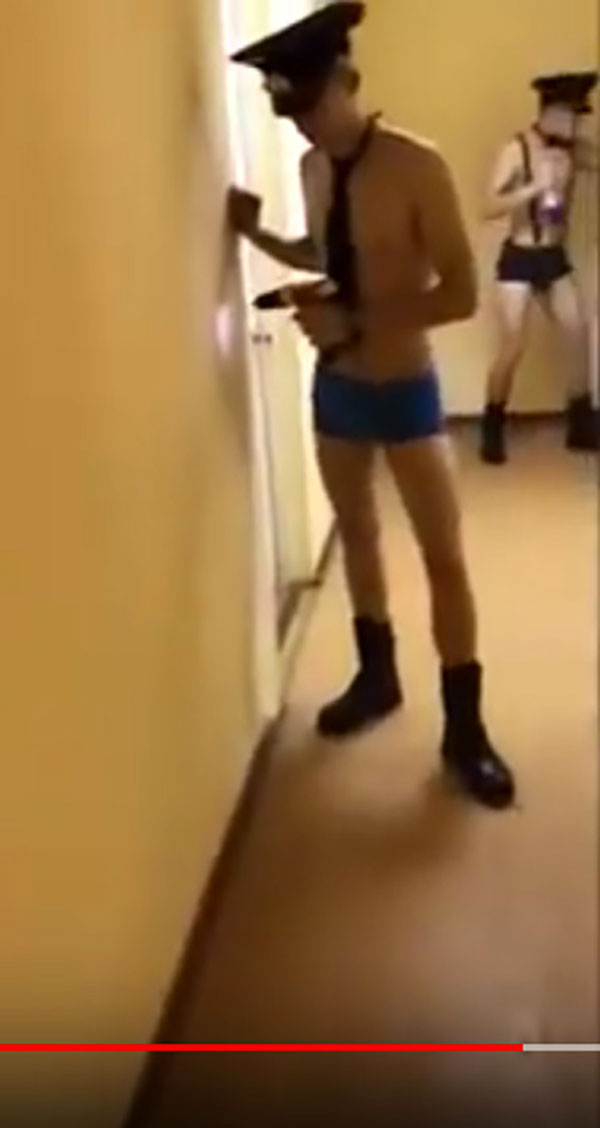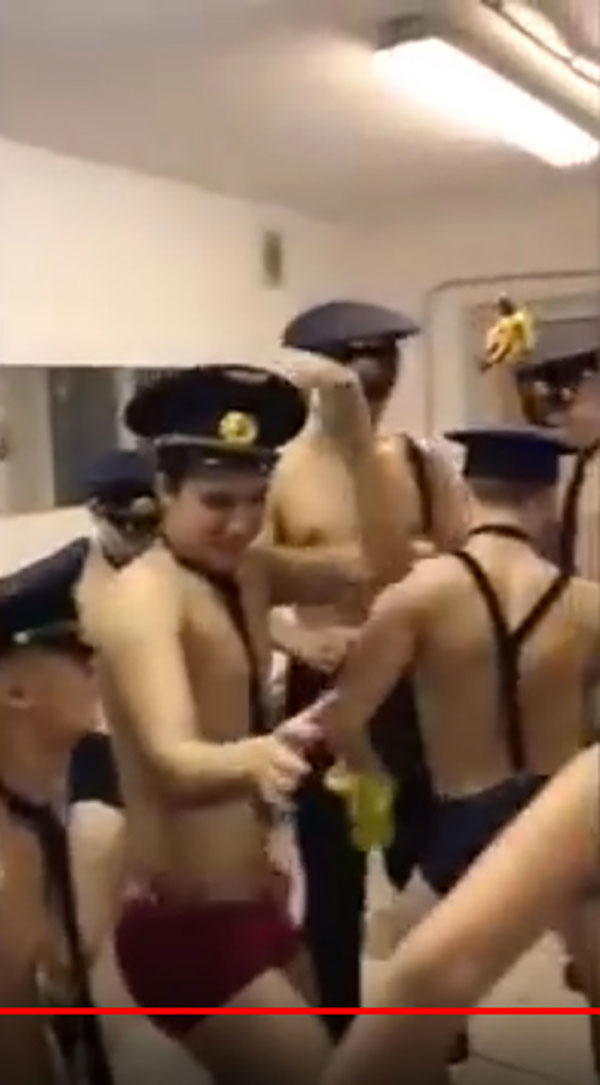While there’s nothing new about teenagers making parody videos—which have been a part of popular viral culture since the existence of strap on-webcams, :NSYNC and the boredom of teen years—a recent parody clip has transcended the form. What began as a typical pop montage video, viewed across Russian social media, was transformed into a national political protest movement, a parody evolving virally into political art.
Last January a group of Russian cadets living in an aviation academy (a state-sponsored dormitory for young boys who want to be pilots) got bored one weekend and made a really campy gay YouTube video. In their performance, they lampooned Benny Benassi’s music video “Satisfaction.” The young cadets stripped down to their underwear and adorned with their official Russian pilot caps performed hyperbolized sexual dance moves on random objects around their dormitory. The video is shot in one take and seamlessly weaves through different nooks and rooms in the building—each occupied by a new “actor” gyrating at 130 beats per minute to Benassi’s bubblegum bass bump. The performance ends in a laundry room filled with the entire academy grinding in a hilarious bacchanalian dance party.

Still from the Russian cadet video.
The video gained momentum on YouTube, and eventually landed in front of Russian officials. In technical terms, they totally freaked out. One official called the incident “disgusting,” while Sergei Krasnov of the Ulyanovsk Institute of Civil Aviation called the video “[an] unforgivable disgrace to veterans… they could be expelled, perhaps, even, tried [under Russia’s anti-homosexual law].” In fairness, a handful of officials did disagree with the condemnation and found the video benign—but their response was too late. The government’s initial message of reproach had been clearly received by the public and they were outraged—so outraged that they felt compelled to strip down, hit record and dance in solidarity.
Civilians across Russia emerged to show solidarity by proudly copying the exact crime of the condemned—civil disobedience to a beat. The seed of the soon-to-be-viral protest was planted by The Agricultural College: they lowered their hoes and put their own spin on an equally homoerotic “Satisfaction” tease. Then the firefighting academy followed suit, and in the coming hours and days a litany of videos were uploaded in support of the cadets—from Russian military tankers, skiers, biathletes, grandmas and bodybuilders, to auto mechanics and strippers. The flood of new uploads birthed the hashtag #satisfactionchallenge.

Still from the Russian cadet video.
#Satisfactionchallenge served as a tool for protesters to aggregate support from Russia, and the world, into one organized stream on the internet. By funneling the videos to one hashtag, viewers could cycle through and share any video with a couple of clicks. The hashtag legitimized the movement, and scaled their message to a wider audience. The creators of these videos essentially said, “this is who we are, this is where we are, fuck you, come and get us.” With each new video, a new socio-political group stepped into the potential line of fire and in the most transparent way put their entire school, troop or business under governmental scrutiny. Luckily for the protesters, local support was too widespread and too many foreign eyes were glued to the developing story, which weakened the government’s ability to take serious action and left them angry and awestruck as more videos continued to roll in.
Western media eventually found the hashtag and less than a week after the original video’s launch they relentlessly reported on the evolving drama. The New York Times, The Washington Post, The New Yorker, BBC and many more all wrote their own version of the story, which immortalized the cadets and heroized the #satisfactionchallenge video artists.
While Russia’s penalties for homosexuality and governmental protest have ramped up the last six years, #satisfactionchallenge shows that the ideologies of the country’s actual citizens are far more progressive than what the Kremlin boasts. Not only did Russians disagree with their state, they organized and made homoerotic art to deliberately and publicly defy it. In the end, the protesters successfully disarmed their government’s initial call to action, the cadets were never tried or expelled, and the internet became a funnier place because of it.

Still from the Russian cadet video.


